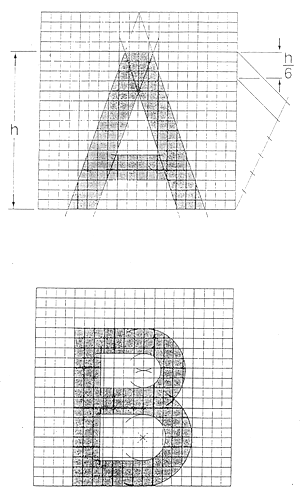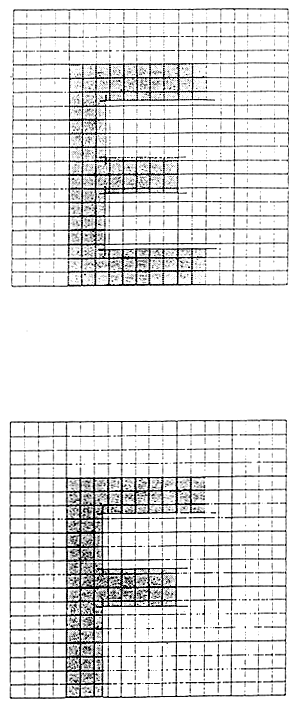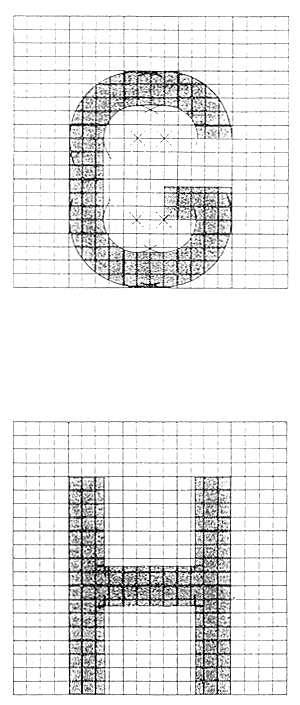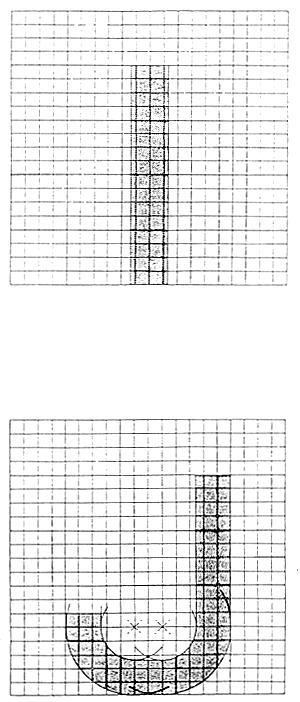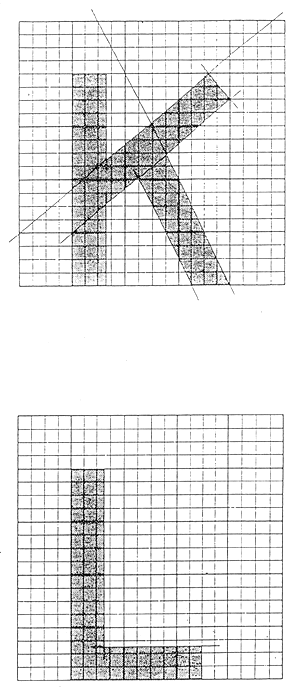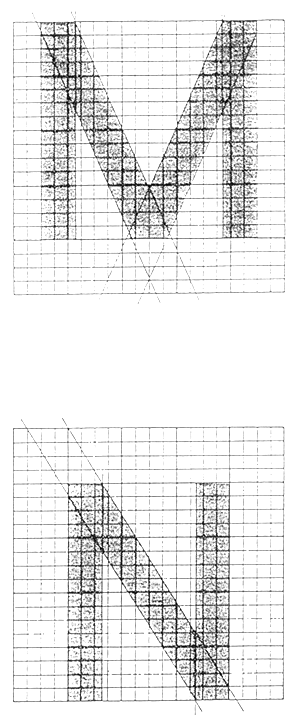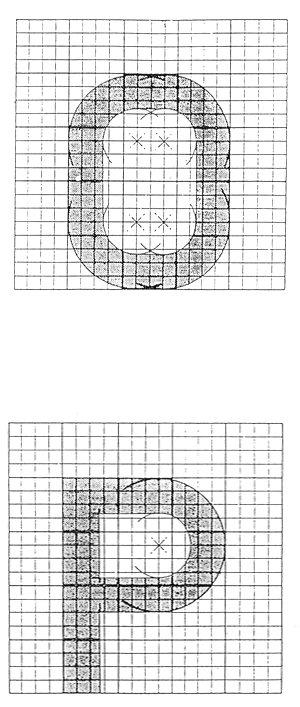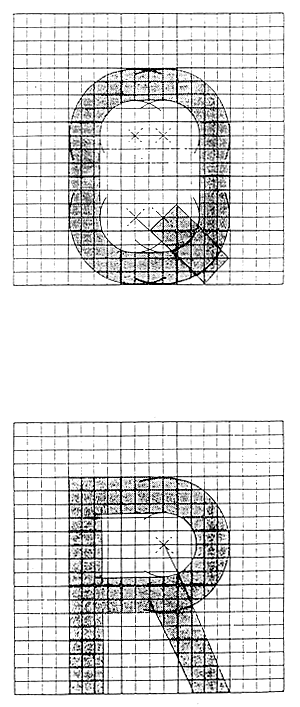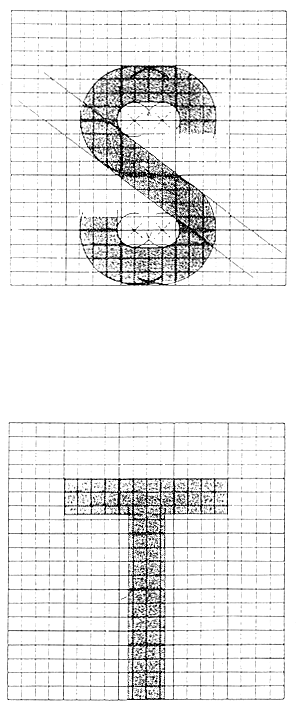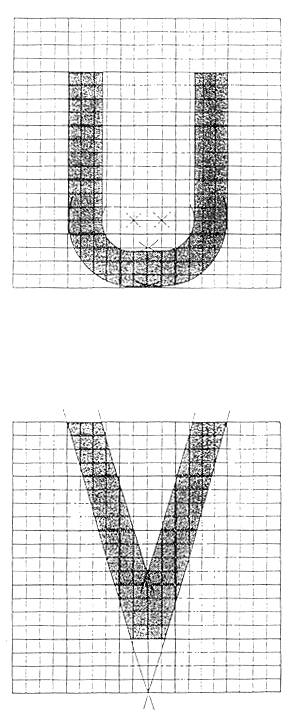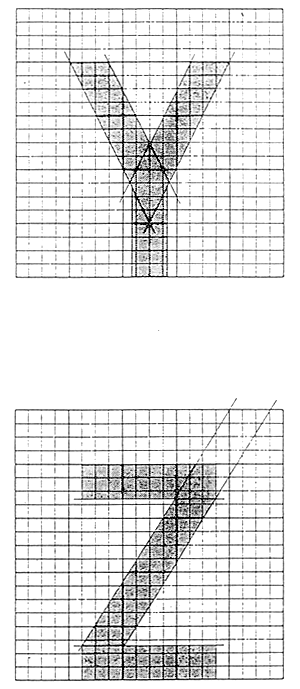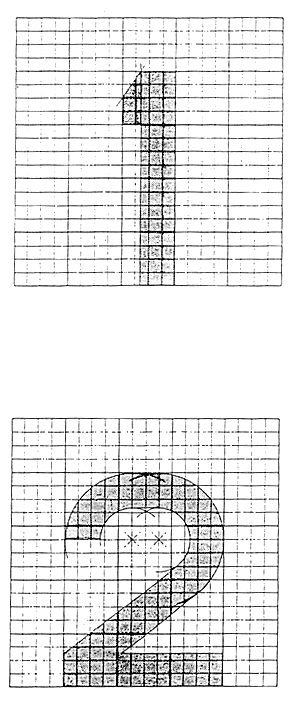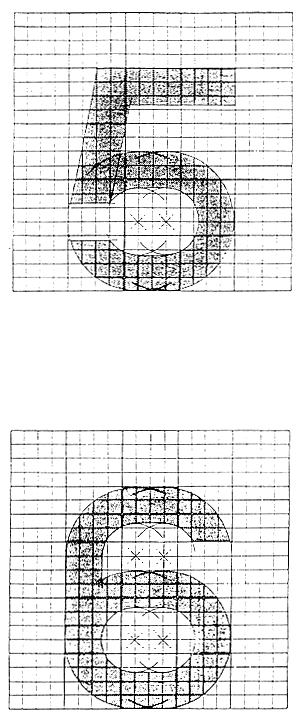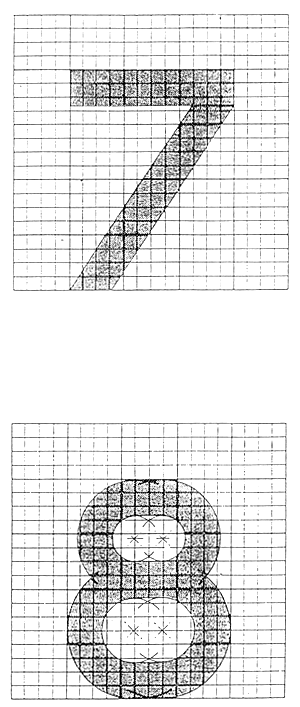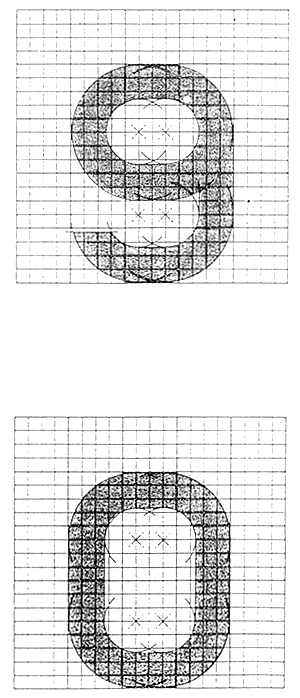The current report is the second one on legal matters under the project TCP/ERT/2251 “Assistance to Fisheries Development Planning and Resources Management”. The first report, by Prof. Scovazzi and Mr. Reynolds, Team Leader of the TCP project, analysed the constitutional and legal situation governing fisheries in Eritrea1. Amongst its recommendations was immediate action to draft maritime zones and fisheries legislation. A second legal mission, of which the present report is a product, was accordingly organized.
As planned the mission drafted a fisheries law and regulations in consultation with Eritrean authorities. The drafts and accompanying notes are contained in the present report.
In the course of the mission, it appeared that maritime zones legislation would not be acted on immediately. Accordingly a draft was prepared which included many provisions taken from the UN Convention on the Law of the Sea that would probably not be incorporated in an Eritrean act. The draft was given to the Government for its information but is not included in the present report. When the Government is ready to adopt maritime zones legislation, FAO will be able to advise on the revision of the draft prepared during the mission.
During the mission the Government also requested advice on marine pollution. The mission prepared notes on the subject and a draft text of interim legislation, and these were given to the Government during the mission. The notes are included in the present report; the question of legislation, on the other hand, has been referred to the International Maritime Organization for further advice.
FAO wishes to thank the many Eritrean officials and private persons that assisted the mission during its stay. In particular, Mr. Alemseded Sellasse Zerom, Legal Adviser to the Department of Ports and Maritime Transport, formed part of the mission as a fulltime counterpart and contributed materially to all phases of the work. The mission could not have accomplished its tasks without his knowledge and judgement. Mr. Saleh Meky, Secretary of Marine Resources and Inland Fisheries, gave the mission essential encouragement and assistance, and the members of the mission hope that its work will in turn be useful to Mr. Meky and his Department in their challenging task.
Eritrea occupies the western shore of the Red Sea from the Strait of Bab el Mandeb in the south to the Sudanese border about 800 kilometres to the north (1200 km. by the coastline). It includes the Dahlak archipelago of coralline islands and associated reefs.
The fisheries of Eritrea have recently been very lightly exploited after heavy fishing in the 1950's and 1960's. This has very likely permitted a restoration of stocks, although there is some locally heavy artisanal fishing.
Current fisheries are limited to relatively small vessels (sambouks, houris and canoes) mainly practising hand-lining and gill-netting. Sharks (for drying) and table fish are the main catches. A frame survey carried out under the TCP project will shed further light on the level of present catches, but they seem unlikely to exceed 1,000 tonnes.
Estimates of resources vary greatly in the absence of recent fishing, but sustainable yield may be in the order of 15–20,000 tonnes of demersal species, 50,000 tonnes of pelagics, and an unspecified amount of lobster, shrimp, trochus and sea cucumber. The maximum economic yield will surely be less than the sustainable yield, but these figures still indicate a considerable, under-exploited resource.
Aside from local trading, fish marketing is currently handled by two co-operatives that buy fish in Masawa and sell it there and in Asmara and by the Department of Marine Resources and Inland Fisheries, which has a monopoly over shark, shark-fin and snail-nail exports. There is also an informal trade with Yemen, where shark products are in demand and where gear which is unobtainable in Eritrea is available.
The controlled prices presently offered to the national fishermen and women are barely remunerative, according to several financial analyses. In any case, it is not a price structure that encourages new investment, and the latter will be necessary if Eritrea is not to become dependent on foreign fishing to supply its own markets.
The scope for increasing artisanal catches is indicated by previous levels of 13–17,000 tonnes in the gillnet/handline fishery and 25–50,000 tonnes in beach seining. Bottom trawling, which is likely to be a foreign fishing operation when it recommences, produced 7–11,000 tonnes. As it happens, the bottom trawling areas are not of great interest to artisanal operators, and the artisanal areas, with their coral bottoms, are not trawlable. Thus a certain separation of gear is imposed.
The larger national fishing vessels are currently licensed, although on what basis and under what conditions is not clear. Foreign fishing has barely begun, but the department has received many inquiries from foreigners interested not only in fishing, but in collecting fish from the artisanal fishery and in aquaculture.
Discussions during the first legal mission indicated the absolute priority of basic fisheries legislation as a framework for handling the foreign fishing enquiries. Systematic refusal of these proposals does not appear to the mission to be in Eritrea's long- or short-term interests. The artisanal fishery cannot presently take more than a fraction of the biologically and economically desirable catch. Foreign fishing can supply the lack of capacity in short order and then be phased out as the artisanal fishery grows.
Foreign fishing can be a significant source of revenue - one of the very few non-tax sources in Eritrea. In the slightly longer perspective, fishing enterprises can be a source of investment in shore facilities, and their use of shore facilities can produce significant value added in Eritrea. When sufficient experience is gained in working with particular operators, joint ventures or other longer-term fishing arrangements can also be concluded.
The advantages of foreign fishing can only be realized if the financial benefits are insisted on and received, if the information on which future development depends is reliably supplied and if the artisanal fishery is not adversely affected by competition from the foreign fleet - either on the fishing grounds or in the marketplace. Making sure of these conditions requires careful evaluation before issuing each licence and careful monitoring of performance afterwards.
The draft fisheries legislation is designed as a legal framework within which the Government can realize these benefits while protecting and fostering the artisanal fishery and conserving the fishery resources. It is also designed as a basis for installing management of the artisanal fishery before serious problems of overfishing arise. It is hoped that simple planning will allow such problems to be anticipated, avoid committing either capital or people to harmful or unremunerative fishing and give the energy and enterprise of the national fishing population room to operate.
The draft legislation set out in this report consists of a draft Fisheries Proclamation, to which are annexed draft Guidelines for Approval of Fishing Joint Ventures, and draft Fisheries Regulations. In addition notes on the texts are included on pages facing the relevant passages of the draft Proclamation and the main body of the draft Regulations (there are no notes to the Schedules of the draft Regulations).
Following discussion with Government officials, an effort has been made to avoid terms such as “fisherman” which incorrectly imply that only males engage in certain occupations or hold certain positions. On the other hand, no effort has been made to avoid the masculine personal pronoun when referring to a person that could be of either sex (e.g., the Secretary). It appears that the convention whereby “he” is understood to refer to an antecedent of unspecified gender is used in Eritrean legislation. To abandon the convention would have made the text heavier and less comprehensible to both ordinary readers and those familiar with existing law.
In case the government should wish to avoid the use of masculine personal pronours in such situations, alternative texts are indicated in the notes that accompany the texts.
PROCLAMATION NO. 1993
FISHERIES PROCLAMATION
WHEREAS the Provisional Government of Eritrea is aware of the potential of the fishery resources of Eritrea for development and of its obligation to manage them for the permanent benefit of the country;
NOW THEREFORE the following Law is hereby proclaimed:
This Law has been proclaimed by the Department of Marine Resources and Inland Fisheries of the Provisional Government of Eritrea.
This Law may be cited as the Fisheries Proclamation No. of 1993.
For the purposes of this Law, unless the context otherwise requires -
“aquatic organism” means any aquatic plant or animal with the exception of birds, and includes any fish, crustacean, mollusc, coral, echinoderm, holothurian, aquatic reptile or aquatic mammal and its shells, eggs and other naturally occurring products;
“authorized officer” means any authorized officer appointed under Article 5, any police officer not below the rank of [sergeant] and any member of the armed forces not below the rank of [lieutenant];
“Department” means the Department of Marine Resources and Inland Fisheries and, in respect of any communication, authorization or requirement, means the officer of the Department appointed by the Secretary for that purpose.
“Eritrean waters” means inland waters, marine internal waters, the territorial sea and any waters or the seabed over which Eritrea exercises sovereign rights in respect of living resources;
“fishing” means fishing for, catching, taking or killing fish or other aquatic organisms by any method;
“fishing licence” means a licence issued under Articles 15, 17 or 18;
“fishing vessel” means any vessel used for fishing;
“foreign fishing vessel” means a foreign fishing vessel in accordance with Article 13;
“licensing officer” means, in respect of a licence issued under Article 15, the Secretary, and, in respect of any other licence under this Law, the fisheries officer appointed by the Secretary to issue the licence;
“national fishing vessel” means a national fishing vessel in accordance with Article 13;
“related activities” in relation to fishing means -
transhipping fish or other aquatic organisms to or from any vessel;
storing or processing fish or other aquatic organisms;
transporting fish or other aquatic organisms taken from Eritrean waters up to the time they are first landed;
refuelling or supplying fishing vessels or performing other activities in support of fishing operations;
“Secretary” means the Secretary of the Department;
“this Law” includes regulations made under this Law.
NOTES
Art. 3 - The definition of “authorized officer” must be specified by Eritrean authorities. Because of the delicacy of intercepting foreign vessels which may only be exercising their rights of navigation, it is recommended that the enforcement officer be of appropriate rank to take decisions having considerable foreign relations consequences. Such officers should also be trained in fisheries enforcement and preferably be under the direction of a fisheries officer when undertaking fisheries enforcement, but these requirements would not be included in the Law.
- The definition of “Eritrean waters” includes inland, internal territorial waters, over which Eritrea has “sovereignty” and the continental shelf (in respect of sedentary species) and possible fishing or economic zones over which Eritrea would have “sovereignty rights” as defined in the UN Convention on the Law of the Sea.
- “Related activities” are not included in “fishing”, since it is not clear which of them Eritrea would want to regulate and in what way. They can be made subject to a licence under Art. 18, and the related activities of licensed vessels can be regulated through conditions laid down under Art. 20.
The Department shall be responsible for the management and development of fisheries in Eritrea and for the administration of this Law.
The Secretary may appoint any public officer to be an authorized officer for the purpose of this Law.
There shall be a Fisheries Advisory Council to advise on the management and development of fisheries and discharge such responsibilities as are conferred on it under this Law.
The Fisheries Advisory Council shall be composed of the following persons:
a fisheries officer appointed by the Secretary;
a representative of the Department of Ports and Maritime Transport;
a representative of the Department of Economic Development and Cooperation;
a representative of the University of Asmara;
at least two persons engaged in fisheries.
The Fisheries Advisory Council shall elect one of its members to be the chairperson.
The Fisheries Advisory Council may invite other persons to participate in its meetings and shall, whenever it considers matters particularly affecting one area of Eritrea or a government department, invite one or more persons engaged in fisheries in that area, or representative from that department, to participate in its meetings.
The Fisheries Advisory Council shall determine its own rules of procedure.
The Secretary shall prepare and keep under review plans for the management and development of fisheries in Eritrean waters, and shall base the national fisheries development programme on such plans.
Each plan shall:
identify the fishery and assess the present state of its exploitation;
specify the objectives to be achieved in the management of the fishery;
specify the management and development measures required to achieve the objectives; and, in particular,
specify the licensing programme to be followed for the fishery, the limitations, if any, to be applied to national fishing operations and the amount of fishing, if any, to be allowed to foreign fishing vessels.
In the preparation of each fisheries management and development plan, the Secretary shall:
consult with persons engaged in the fishery, local authorities, other persons and government departments affected by the plan;
present a draft of the plan to the Fisheries Advisory Council for its opinion.
The Secretary shall consult whenever feasible with the fisheries management authorities of other States in the Red Sea, and in particular with those sharing the same or related stocks, with a view to ensuring the harmonization of their respective fisheries management and development plans.
NOTES
Art. 7 - The fisheries management and development plans are the central element in determining licensing policy and are referred to throughout the Law. A national development programme should be based on the plans, but is not the subject of licensing and other regulatory decisions, so is not otherwise referred to.
The Secretary may make regulations prescribing measures for the proper management of fisheries.
Prescribed management measures may include but are not limited to -
closed seasons and closed areas;
prohibited fishing methods and gear and specifications of gear that may be used (including the mesh size of nets);
the species, sizes and other characteristics of fish and other aquatic organisms that it is permitted or forbidden to catch;
schemes for the limitation of entry into all or any specified fisheries.
A regulation prescribing management measures may also prohibit the possession, purchase, sale, import or export of any gear, fish or other aquatic organism.
The Department shall collect, analyse and publish statistical and other information on fisheries.
Every person engaged in fishing, related activities or aquaculture shall supply such information regarding those activities, in such form, as an authorized officer may require.
The Secretary may consult with the fisheries management authorities of other States in the Red Sea with a view to the harmonization and exchange of information on fisheries.
No vessel shall be used in Eritrean waters for research related to living resources except under the authority of an authorization under paragraph (2) or of a fishing licence.
The Secretary may in writing authorize any person or vessel to fish for the purpose of scientific research, subject to such conditions as he may prescribe by regulations or otherwise specify.
An authorization under paragraph (2) may exempt any person or vessel from any provision of this Act.
NOTES
Art. 10 - This Article requires fisheries research to be authorized and allows for conditions to be set by regulation or case by case. The regulations recommended relate to filing a research plan, making data available and taking Eritrean researchers on board. Other conditions would depend on the nature of the research.
“The Secretary” is an alternative to “he”.
No person shall fish for any marine mammal in Eritrean waters.
Any marine mammal caught accidentally shall be released forthwith and returned to the waters from which it was taken with the least possible injury.
NOTES
Art. 11 - Similar provisions to the protection of marine mammals may be required for some species of turtle. Such provisions can be imposed by regulations when the species needing protection are identified.
The Secretary may, after consultation with the occupiers of adjoining land, the authorities responsible for other uses of the area, the appropriate local government councils and the Fisheries Advisory Council, declare any area of Eritrean waters to be a marine reserve.
A declaration of a marine reserve may prohibit or restrict fishing within the reserve.
Except with the written permission of the Secretary, no person shall within any marine reserve -
take or destroy any coral or take any shell;
dredge or take any sand or gravel;
otherwise destroy or disturb the natural habitat;
fish contrary to any prohibition or restriction under paragraph (2).
A fishing vessel which -
is wholly owned by one or more citizens of Eritrea, the State, its bodies or enterprises; or
is wholly owned by a business organization established under the Commercial Code, of which all of the shareholders or partners are citizens or state enterprises of Eritrea or the State -
shall be a national fishing vessel for the purposes of this Law.
The Secretary may in writing determine that a vessel which [is wholly owned or chartered by a business organization established under the Commercial Code and of which 51 per cent of the voting shares are held by Eritrean citizens, the State, its bodies or enterprises,] shall be a national fishing vessel for the purposes of this Law.
Any fishing vessel which is not a national fishing vessel in accordance with this Article shall be a foreign fishing vessel for the purposes of this Law.
NOTES
Art. 13(1) - The definition of national vessel excludes owners that are non-profit associations under Book I, Title III, Chapter 2 of the Civil Code. Co-operatives are not treated as non-profit (Civ. Code art. 405) and would therefore be included among potential owners.
Art. 13(2) - The power of the Secretary to expand the definition of national vessel is designed to provide for joint ventures, charters and other arrangements involving both Eritreans and foreigners. The precise definition depends on the Government's policy toward foreign participation in fisheries and in the economy generally. If joint ventures are allowed to qualify as national vessels, it is recommended that the guidelines attached to these notes as Annexe 1 be used in determining their eligibility and that the fees they pay be the proportion of the foreign fishing fee corresponding to the foreign participation in the joint venture. The draft Fisheries Regulations contain recommended provisions on fees for joint ventures.
The Secretary, with the approval of the Council of Ministers, may enter into agreements with other States and with international organizations to which States have delegated the power to negotiate fishing agreements, and with associations representing foreign fishing vessel operators, providing for the allocation of fishing rights to vessels from those States, organizations or associations.
The total fishing rights allocated under agreements entered into under this Article shall not exceed the total resources or amount of fishing allowed to foreign fishing vessels under the applicable fisheries management and development plan.
Any agreement entered into under this Article shall include a provision establishing the responsibility of the foreign State, organization or association to take all necessary measures to ensure compliance by its vessels with the terms and conditions of the agreement and with the laws relating to fishing in Eritrean waters.
No foreign fishing vessel, except a vessel used exclusively for recreational fishing, shall be used for fishing in Eritrean waters except under the authority of a valid licence issued under this Article or of an authorization under Article 10.
Subject to this Law and to the applicable fisheries management and development plan, the Secretary may issue a licence in respect of any foreign fishing vessel authorizing the vessel to be used in Eritrean waters for such fishing or related activities as may be specified in the licence.
No licence shall be granted under paragraph (2) unless:
there is in force with the Government of the flag State of the vessel, with an intergovernmental organization to which the flag State has delegated the power to negotiate fishing agreements or with an association of which the operator is a member, an agreement entered into under Article 14 to which Eritrea is a party; or
where there is no applicable agreement under Article 14, the Secretary determines that such an agreement is not feasible and the applicant provides sufficient financial and other guarantees for the fulfilment of all obligations under this Law.
NOTES
Art. 15(1) - Recreational fishing vessels are excluded from the licensing requirements and penalties designed for foreign commercial fishing. A licence for recreational fishing can always be required by regulations under Art. 18 when it becomes a significant activity. If, as recommended, national recreational fishing vessels are exempted from the requirement of a national fishing vessel licence under Art. 17, they too could be licensed by regulations under article 18.
Art. 15(3) - It is recommended that normally a fisheries access agreement be required before a foreign licence can be issued. There is, however, provision for cases in which an agreement is not feasible. A typical case in which an agreement would not be feasible is test fishing. A licence should still be required, however, because catches in a successful test can be substantial - and valuable.
Any foreign fishing vessel, except a vessel used exclusively for recreational fishing, that is not licensed in accordance with Article 15 or authorized under Article 10 shall at all times that it is in Eritrean waters keep its fishing gear stowed in such manner as may be prescribed by regulations.
No national fishing vessel may, unless it has been exempted under paragraph (2), be used for fishing except under the authority of a valid fishing licence issued under this Article or of an authorization under Article 10.
The Secretary may make regulations exempting any category of local vessel from the requirements of this Article, subject to such conditions as he may prescribe.
A licensing officer shall, upon proper application in accordance with Article 19, grant a licence in respect of a national fishing vessel if he is reasonably satisfied that-
the issue of the licence is consistent with the applicable fisheries management and development plan; and
the applicant is able and willing to comply with the conditions of the licence.
NOTES
Art. 17(2) - The exemptions proposed for national vessels would be for those below a certain size (8 metres, for example) and for recreational fishing.
“The Secretary may prescribe” is an alternative to “he may prescribe”.
Art. 17(3) - “Licensing officer” is an alternative to “he”.
The Secretary may make regulations requiring a licence for-
any kind of fishing, with or without the use of a vessel;
the use of a vessel for any related activity.
A licensing officer may, upon application in accordance with Article 19, issue a licence authorizing the applicant to conduct any kind of fishing or related activity for which the licence is required by regulations under paragraph (1).
NOTES
Art.18 - Regulations can be provided for licences for the operation of collector vessels and for aquarium fish. Eventually licences might be required for game fishing, other recreational fishing, snail nails, bêche de mer, turtles, coral and shells. But it is premature to require such licences until they are needed.
An application for a licence under this Law shall be made in the form and manner prescribed by regulations.
Every fishing licence shall be subject to such general conditions as the Secretary may prescribe, to the conditions made applicable to the licence by any agreement under Article 14, and to any special conditions which may be endorsed on the licence by the licensing officer, including conditions relating to-
the type and method of fishing or related activity authorized;
the areas within which such fishing or related activity is authorized;
the target species and amount of fish or other aquatic organisms authorized to be taken, including any restrictions on by-catch; and
measures to facilitate enforcement of this Law.
The Secretary may from time to time, where he is satisfied that it is expedient for the proper management of fisheries, vary any special condition attached to any fishing licence.
Where the Secretary varies any special condition attached to any fishing licence, he shall notify the licensee of such variation as soon as practicable.
NOTES
Art. 20(2) - The words “he is ” could be omitted if desired.
Art. 20(3) - The paragraph could be rephrased “Where any special condition attached to any fishing licence is varied under paragraph (2), the Secretary shall notify the licensee of such variation as soon as practicable.”
There shall be payable in respect of every fishing licence such fees and other payments as may be prescribed by regulations or as may be provided for by an agreement under Article 14.
NOTES
Art. 21 - As a practical matter, the fees payable under an agreement will have to be negotiated, not dictated by Eritrea. Since they can be substantially more than a single fisherman might pay, there is some advantage in this way of setting fees. Negotiated fees could always be put in the form of regulations, but the provisions of foreign fishing agreements relating to fees are sometimes rather complicated. This provision allows them to become obligations under the Law without the necessity of making long regulations.
A fishing licence issued under this Law shall be valid for such period not exceeding [five years] as may be prescribed by regulations or specified in the licence.
Where a vessel licensed as a national fishing vessel ceases to be a national fishing vessel, the licence in respect thereof shall automatically terminate.
The term of a licence issued under Article 15 shall not extend beyond the term of any applicable agreement under Article 14, or if there is no such agreement, beyond one year.
No fishing licence shall be transferable except with the written permission of a licensing officer or as may be prescribed by regulations for the limitation of entry into any fishery.
NOTES
Art. 22 - Annual licences are very common in fisheries, but they are so often renewed that the short term is rather fictitious. Foreign licences are normally renewed throughout the duration of the access agreement. Local licences are only subject to non-renewal for causes that would justify cancellation. On the other hand, some licences are very short term (seasonal fisheries).
It is recommended that no licence be longer than can be economically justified, perhaps five years. Foreign licences should be limited to the duration of the access agreement, which will almost always be less than five years. If there is no access agreement, the licence should not exceed one year.
The Secretary may suspend any fishing licence where a vessel or any gear in respect of which the licence has been issued has been used, or any activity has been conducted, in contravention of this Law or of any condition of the licence.
A licensing officer may suspend and the Secretary may cancel any fishing licence where such action is necessary or expedient for the proper management of fisheries.
In the event of the suspension or cancellation of any fishing licence for the reasons set out in paragraph (2), any fees paid with respect to the period of time during which the licence is suspended or cancelled shall be refunded to the licensee.
NOTES
Art. 23 - In the case of misbehaviour of the licensee, suspension is provided at the administrative level, but cancellation requires a court order under Article 36.
No person shall, in any water other than a personal aquarium facility, culture fish or other aquatic organisms except under the authority of a valid authorization issued under this Article.
The Secretary may in writing grant an exclusive authorization to any person to culture and take fish and other aquatic organisms in any specified place in Eritrea or Eritrean waters.
No authorization shall be granted under this Article unless:
the applicant has rights to occupy any land or any area of the sea and to abstract any water required for the aquaculture activities; and
the Secretary is satisfied, following consultation with the Fisheries Advisory Council and the authorities responsible for other uses of the sea and for the environment, that the proposed activity will not cause undue interference with other uses of the sea or with the environment.
NOTES
Art. 24(2) - The exclusive authority is necessary to avoid any implication that others can fish in a licensed aquaculture facility. It only relates to the place where the licensee has rights to occupy the land or maritime area (paragraph (3)(a)), and not to a whole region of the country.
An authorization under Article 24 shall be for such term not exceeding [twenty] years, and subject to such conditions, including the payment of such fees, as the Secretary may determine.
The Secretary may vary the conditions of an authorization under Article 24 at any time in order to protect the environment from contamination or to prevent the spread of disease or to protect the quality of the organisms in the aquaculture facility.
NOTES
Art. 25(1) - The duration of an aquaculture authorization should be sufficient to allow the investor to amortize his facilities, but not longer than necessary to attract the investment. It is suggested that twenty years is the maximum term that would be necessary; for methods such as cage culture, five years might be sufficient.
No person shall fish in any aquaculture facility authorized under Article 24 except with the permission of the operator of the facility.
The Secretary may order the suspension of operations and closure of an aquaculture facility authorized under Article 24 at any time -
where any condition of the authorization has been violated;
where such action is necessary to protect the environment from contamination or to prevent the spread of disease or to protect the quality of the aquatic organiss in the facility.
Where an order is made under paragraph (1), the Secretary may allow a reasonable time to the operator of the facility to correct the conditions leading to the closure or suspension of operations and if such conditions are not or cannot be corrected, the Secretary may cancel the authorization under Article 24.
For the purposes of enforcing this Law, any authorized officer may, without a warrant -
stop, board and search any fishing vessel in the waters of Eritrea;
require to be produced, examine and take copies of any licence, logbook or other document required under this Law;
enter, inspect and search any premises, other than premises used exclusively as a dwelling house, where fish or other aquatic organisms are being cultivated;
require to be produced and examine any fish or other aquatic organism, fishing net or other fishing gear whether at sea or on land;
destroy or otherwise render harmless any fish or other aquatic organism which he has reasonable grounds to believe is diseased.
The master of any fishing vessel ordered by an authorized officer to stop shall stop the vessel and take all necessary measures to facilitate its boarding.
Where an authorized officer has reasonable grounds to believe that an offence has been committed under this Law, he may, without a warrant -
stop and search any vehicle in which he has reasonable grounds to believe that fish or other aquatic organisms illegally taken or illegally cultured are being transported;
enter and search any premises, other than premises used exclusively as a dwelling house, in which he has reasonable grounds to believe that an offence has been committed or where he has reasonable grounds to believe that fish or other aquatic organisms illegally taken or illegally cultured are being processed or stored;
seize any vessel (together with its gear, stores and cargo), vehicle or fishing gear, which he has reasonable grounds to believe has been used in the commission of the offence or in relation to which the offence has been committed;
seize any fish or other aquatic organism which he has reasonable grounds to believe has been caught or produced in the commission of the offence, or is being possessed, imported or exported in contravention of this Law;
seize any poison or explosive which he has reasonable grounds to believe is being possessed in contravention of this Law;
take samples of any fish or other aquatic organisms found in any fishing vessel, premises or vehicles searched under this Article;
arrest any person who he has reasonable grounds to believe has committed an offence under this Law.
An authorized officer in exercising any of the powers conferred on him by this Article shall on demand produce such means of identification as may be necessary to show that he is an authorized officer for the purposes of this Law.
A written receipt shall, wherever feasible, be given for any thing seized under paragraph (3) and the grounds for such seizure shall be stated in the receipt.
Any vessel seized under paragraph (3) and the crew thereof shall be taken to the nearest or most convenient Eritrean port, and any vessel or other thing seized under paragraph (3) shall be delivered into the custody of a court.
Any person arrested shall be taken as soon as practicable before a court to be dealt with according to the law.
In cases of arrest or detention of foreign vessels the flag State shall be promptly notified of the action taken and of any penalties subsequently imposed.
NOTES
Art. 28 - The Criminal Procedure Code provides for most matters of criminal procedure, but certain aspects of fisheries enforcement (boarding of vessels, disposal of perishable good, release of vessels) require special treatment. Those are provided in this and the succeeding Articles, but the other provisions of the Code still apply.
Some fisheries laws include provisions for the immunity of authorized officers. The Eritrean Penal Code immunizes persons whose actions are required by law or professional duty from criminal liability (Art. 64-65). This is apparently all the protection which is offered to any public official, including the police, and is considered adequate by national authorities.
Under international law, enforcement authorities can exercise control over national vessels even outside of national waters, but they cannot pursue such actions into the territorial sea of another state and there is some question about enforcement in another state's EEZ. Since it is likely that Eritrea will extend its jurisdiction to those areas that are important for fisheries purposes, it should be sufficient to limit enforcement to “Eritrean waters”. This will avoid possible misunderstandings with neighbouring countries.
Art. 28(3) - The beginning of the paragraph could be rephrased “Any authorized officer, where having reasonable grounds to believe that an offence has been committed under this Law, may, without a warrant . . . .” In the remainder of the paragraph, “the officer” is an alternative to “he” wherever it occurs.
Art. 28(4) - “The officer” is an alternative to “him” and “he”.
Art. 28(5) - Article 33 of the Criminal Procedure Code provides for the police to give a receipt when evidence is seized.
Art. 28(7) - Article 58 of the Criminal Procedure Code requires that the person making an arrest hand the arrested person over to the police. Article 29 requires the police to bring the arrested person before the nearest court.
Where, following the commission in Eritrean waters of an offence against this Law with the use of a vessel, the vessel is pursued beyond the limits of Eritrean waters, the powers conferred on authorized officers under Article 28 shall be exercisable in respect of such vessel beyond the limits of such waters in the circumstances and to the extent recognized by international law.
Any vessel or other thing seized under Article 28(3) shall, except as provided in Articles 31 and 32, be held by the court and dealt with as provided in Article 35.
An authorized officer or the court may, to avoid spoilage or decay of any fish or other aquatic organism or other thing of a perishable nature seized under this Law, sell them or, if sale is impracticable, dispose of them in such manner as may appear suitable.
In case of sale or disposal under paragraph (1), the authorized officer or court shall give to the person from whom the seizure was made a receipt stating -
the date of the sale;
the quantity of fish or other aquatic organisms and other things of a perishable nature sold; and
the amount realized from the sale.
The proceeds of any sale under paragraph (1) shall be paid to a court and dealt with in the manner provided by Article 35 for the fish or other thing sold.
The Secretary may on application therefor, order the release of any fishing vessel (together with its gear, stores and cargo), vehicle, fish, other aquatic organism or fishing gear seized under this Law on receipt of a reasonable bond or other form of security.
Any bond or other form of security received under paragraph (1) shall be delivered to a court and dealt with in the manner provided by Article 35 for vessel or other thing released.
Where any foreign vessel, except a vessel used exclusively for recreational fishing, that is not licensed under Article 15 or authorized under Article 10 is used for fishing in Eritrean waters, the owner or charterer and master shall each be guilty of an offence and liable to a fine not exceeding [100,000 birr].
Where any foreign vessel that is licensed under Article 15 or authorized under Article 10 is used in contravention of any condition of the licence or authorization, the owner or charterer and master shall each be guilty of an offence and liable to a fine not exceeding [50,000 birr].
Where any national vessel that is required to be licensed under Article 17 or authorized under Article 10 is not so licensed or authorized and is used for fishing in Eritrean waters, the owner or charterer and master shall each be guilty of an offence an liable to a fine not exceeding [20,000 birr].
Where any national vessel that is licensed under Article 17 or authorized under Article 10 is used in contravention of any condition of the licence or authorization, the owner or charterer and master shall each be guilty of an offence and liable to a fine not exceeding [10,000 birr].
Any person who, in Eritrea or Eritrean waters, conducts any fishing or related activity for which a licence is required under Article 18 otherwise than under the authority of and in accordance with the terms of a valid licence, shall be guilty of an offence and liable to a fine not exceeding [20,000 birr].
Where any foreign fishing vessel, except a vessel used exclusively for recreational fishing, that is not licensed under Art. 15 or authorized under Art. 10 is found in Eritrean waters without its fishing gear stowed in the prescribed manner, the owner or charterer and master shall each be guilty of an offence and liable to a fine not exceeding [50,000 birr].
Where any vessel that is not authorized under Article 10 or licensed under Articles 15, 17 or 18 is used in Eritrean waters for research related to living resources, the owner or charterer and master shall each be guilty of an offence and liable to a fine not exceeding [20,000 birr].
Any person who uses any explosive or poison to kill, stun or disable fish or other aquatic organisms in order to render them more easily caught shall be guilty of an offence and liable to a fine not exceeding [50,000 birr].
Any person who fishes in contravention of any management measure prescribed under Article 8 shall be guilty of an offence and liable to a fine not exceeding [10,000 birr].
Any person who prevents or hinders an authorized officer's exercising the powers conferred on him under Articles 28 or 29 shall be guilty of an offence and liable to a fine not exceeding [10,000 birr].
Any person who destroys or abandons any fish or other aquatic organism, fishing gear, explosive, poison or any other thing with the intent to avoid their seizure or the detection of an offence against this Law shall be guilty of an offence and shall be liable to a fine not exceeding [10,000 birr].
Any person who, in Eritrean waters, fishes for any marine mammal or, having accidentally caught any marine mammal, fails to release the marine mammal forthwith and return it to the waters from which it was taken with the least possible injury, shall be guilty of an offence and liable to a fine not exceeding [20,000 birr].
Any person who in a marine reserve, without the written permission of the Secretary, takes or destroys any coral, takes any shell, dredges or takes any sand or gravel, destroys or disturbs the natural habitat, or fishes contrary to any prohibition or restriction under Article 12(2), shall be guilty of an offence and liable to a fine not exceeding [20,000 birr].
Any person who, in any water other than a personal aquarium facility, cultures fish or other aquatic organisms except under the authority of an authorization under Article 24, shall be guilty of an offence and liable to a fine not exceeding [20,000 birr].
Any person authorized under Article 24 who cultivates fish or other aquatic organisms in contravention of any condition of the authorization, shall be guilty of an offence and liable to a fine of [10,000 birr].
Any person required to supply information under this Law who fails to supply such information or supplies false or misleading information shall be guilty of an offence and liable to a fine not exceeding [10,000 birr].
Any person who uses or discloses information received pursuant to this Law for any purpose except the purposes of this Law shall be guilty of an offence and liable to a fine not exceeding [10,000 birr].
NOTES
Art. 33 - The amounts of fines are hypothetical and are specified in order to give an idea of the scale of gravity of offences. In general, it is recommended that those involving foreign vessels be punished more severely than those involving national vessels.
Art. 33(10)- This provision does not refer to cases of assault, threats with violence, bribery, which already fall under the provisions of the Eritrean Penal Code (sea, e.g., Art. 349 and 333). If a specific provision on assault, etc. were to be included in this Law, the possibility of administrative settlement (see Art. 40) of such an offence should be excluded.
“The officer” is an alternative to “him”.
Where an offence under this Law has been committed by any person on board or employed on a fishing vessel, the master of that vessel shall also be guilty of the offence.
Where any person is convicted of an offence under this Law, the court, in addition to any other penalty imposed:
may order that any vehicle or fishing gear used in the commission of the ofnce and, in the case of an offence under Article 33(1), any fishing vessel (together with its gear, stores and cargo) used in the commission of the offence be forfeited;
shall order that any fish or other aquatic organism caught in the commission of such offence and any explosive or poison possessed in the commission of such offence be forfeited.
Where in any prosecution under this Law, all accused are acquitted of any offence, all things held shall be released to the persons entitled thereto and if no person is so entitled, shall be forfeited.
Where any thing in the custody of the court is not ordered to be forfeited, it shall be held until all fines imposed for any offence in commission of which the thing was used, caught or possessed have been paid; and if within thirty days following a judgement of guilt, any part of such fines remains unpaid, such thing may be sold and the proceeds applied toward payment of the fines.
In the case of any administrative settlement under Article 40, all things ordered by the Secretary to be released shall be released forthwith and all other things held shall be forfeited.
If, within thirty days of a seizure under this Law, no charge is filed in respect of an offence in connection with which things are held by the court, such things shall be released to any person who is entitled thereto and, if no person is so entitled, they shall be forfeited.
NOTES
Art. 35 - The disposition of forfeited goods can be dealt with by the court as with forfeiture under the Penal Code.
No mention is made of aquaculture in connection with forfeiture because the reasons for its use in capture fisheries (difficulties of apprehension, public right to the fishery resources) do not fully apply to aquaculture.
Where any person is convicted of an offence under this Law, the court, in addition to any other penalty imposed, may order that any licence or authorization under this Law be cancelled and that no new licence or authorization be issued to the person or in respect of the vessel involved in the offence for such period of time as the court may specify.
NOTES
Art. 36 - Article 23 provides for cancellation of licences when required for management purposes. Where cancellation is desirable because of the misbehaviour of the licensee, a court order is required. As an interim measure, however, Article 23 would allow suspension of the licence. Aquaculture authorizations, on the other hand, could be cancelled by the Secretary.
Unless the contrary is proved:
all fish and other aquatic organisms found on board any fishing vessel which has been used in the commission of an offence under this Law are presumed to have been caught in the commission of that offence;
all fish, other aquatic organisms, coral, shells, sand and gravel found in the possession of a person within a marine reserve are presumed to have been taken within that marine reserve.
In any proceedings under this Law where the defendant is charged with having committed an offence under which a licence or the authorization of any person is required for the doing of any act, the burden shall be on the defendant to prove that at the time to which the charge relates, the requisite licence or authorization was duly held.
In any proceeding under this Law where an exception to any requirement is claimed on behalf of a vessel used exclusively for recreational fishing, the burden shall be on the defendant to prove that the vessel in question was used exclusively for recreational fishing.
Any offence committed under this Law within the waters of Eritrea by any person, or any such offence committed outside such waters by any person on board any national fishing vessel is triable in the courts of Eritrea.
Any offence under this Law involving a foreign fishing vessel may be subject to administrative settlement in accordance with the provisions of this Article.
The Secretary may, if he is satisfied that an offence under this Law has been committed by any person and if the person admits the commission of the offence and consents in writing to its being dealt under this Article -
settle the offence by accepting on behalf of the Government -
a sum of money not exceeding the maximum fine specified for the offence; and
where the gravity of the offence so warrants, surrender of any licence or authorization issued under this Law;
order the release of any vessel or other thing seized in connection with the offence on payment of a sum of money not exceeding the value of the vessel or other thing;
Any sum of money received under this Article shall be dealt with as though it were a fine imposed by a court.
In any proceedings brought against any person for an offence under this Law, it shall be a good defence if the person proves that the offence has been settled under this Article.
NOTES
Art. 40 - The procedure for administrative settlement is intended to facilitate rapid settlement of cases involving foreign vessels, allowing them to depart Eritrea with minimum loss of time without the risk that Eritrea will be unable to exact penalties. In cases of foreign fishing without a licence it is intended that the Secretary settle the case for an amount that approaches what the vessel and catch are worth, bearing in mind that a quick disposition is desirable.
Art. 40(2) - An alternative would be to delete “he is”.
Any person aggrieved by -
the refusal of a licensing officer to issue a licence in respect of a national fishing vessel;
the suspension, cancellation or variation of a condition of any fishing licence;
the suspension of operations or closure of an aquaculture facility or the cancellation or variation of a condition of an authorization under Article 24 -
may, within thirty days, appeal to the court of competent jurisdiction.
NOTES
Art. 41 - The usefulness of an article on appeals will depend on the Government's policy concerning administrative remedies and on the constitutional and other provisions that might in the future govern the matter. Currently there is no administrative court, so an appeal would be heard by the ordinary courts.
The Secretary may make regulations for the implementation of this Law, including regulations:
delimiting areas of Eritrean waters in which fishing shall be reserved to Eritrean citizens and national vessels;
prescribing the manner in which fishing gear is to be stowed and requiring any fishing vessel to stow its gear at any time that it is in an area of Eritrean waters where it is not authorized to fish;
regulating the import and export of live fish and other aquatic organisms;
further providing for the control of aquaculture;
regulating the quality of fish and other aquatic organisms that may be sold or exported, including -
providing for inspection and for the issue of certificates of inspection;
prescribing methods of handling and processing;
prescribing standards for product quality;
prescribing any other matter which is required or authorized to be prescribed.
Regulations made under this Article may provide that their contravention shall constitute an offence and may prescribe fines not exceeding [birr 20,000] for any offence.
Guidelines for the Approval of Fishing Joint Ventures
The following factors will be taken into account by the Minister of Agriculture and Fisheries in determining whether a fishing vessel should be a local fishing vessel for the purposes of the Fisheries Proclamation, 1993. References to “the company” indicate the company owning or chartering the vessel for which local vessel status is sought.
Capital
At least 51 per cent of the paid up capital of the company owning or chartering the vessel must be owned, directly or through companies, by Eritrean citizens. Evidence of payment by Eritrean citizens for their shares in the joint venture and related companies may be required.
A greater Eritrean share in the company will receive more favourable consideration.
A lower ratio of debt to equity in the company will be preferred.
The sources of loans, and in particular the connections between the sources of loans and foreign equity partners, will be taken into account.
Charter arrangements are permitted, but they will be examined carefully in order to avoid their use to avoid local equity requirements. Charter arrangements with owners unrelated to the joint venture will be preferred.
Long-term sales preferences to foreign partners will not be favoured.
Management
Companies in which Eritrean partners have the dominant role in management will be preferred. This will be judged on the basis of positions in corporate and operations management and on the existence of contractual arrangements management services and personnel.
The managing director and a majority of the directors of the company should be Eritrean citizens.
Where managerial positions are not filled by Eritrean citizens, the company should present a plan for the localization of positions. All arrangements for the recruitment of foreign managers will be required to be reported.
Management contracts, technical assistance contracts and other arrangements for the supply of management services will be examined critically, especially if they are with the foreign partner or associated interests.
Shareholder and board voting or committee arrangements will be examined critically and those that increase local control of the company will be favoured.
Technology transfer
Technology that is both new to Eritrea and appropriate for introduction will be favoured.
Arrangements for the transfer of technology will be examined and those considered most realistic will be favoured.
Proposals involving employment of local staff in the largest proportion of technical positions will be favoured. To the extent that foreign technical staff is proposed, the proposal should include a programme for training of local staff and their employment in those positions.
Fisheries Proclamation No. of 1993
FISHERIES REGULATIONS, 19923
IN EXERCISE of the powers conferred by Article 42 of the Fisheries Proclamation No. _ of 1993, the Secretary of Marine Resources and Inland Fisheries hereby makes the following Regulations -
PART I
PRELIMINARY
Art. 1. Short Title
These Regulations may be cited as the Fisheries Regulations of 1993.
Art. 2. Definitions
For the purposes of these Regulations, unless the context otherwise requires -
“foreign fishing vessel licence” means a licence issued under Article 15 of the Law;
“national fishing vessel licence” means a licence issued under Article 17 of the Law.
NOTES
Art. 2 - It is not necessary that the application be in the form set out in the Schedule, only that it contain the required information. The application can be sent by facsimile, telex or any other suitable means.
PART II
FOREIGN FISHING VESSEL LICENCES
Art. 3. Applications
Every application for a foreign fishing vessel licence shall be made in writing to the Secretary and shall contain the information set out in the First Schedule to these Regulations.
Art. 4. Form of Licences
Every foreign fishing vessel licence shall be in writing in the form set out in the Second Schedule to these Regulations.
Art. 5. Fees
The fees payable in respect of a foreign fishing vessel licence shall be the fees established by the applicable agreement under Article 14 of the Law, the fees specified in the foreign fishing vessel licence or if no such fees are established or specified, the fees set out in the Third Schedule to these Regulations.
Where fees are paid periodically, a foreign fishing vessel licence shall be automatically suspended at any time that a payment has not been received within fifteen days of the date it is due.
NOTES
Art. 5 - The fees set out in Third Schedule (and, for national vessels, in the Sixth Schedule) are only given as examples. The real level of foreign fishing fees would depend on what foreign vessel-owners and their Governments were willing to pay.
Art. 6. Licence Conditions
Every foreign fishing vessel licence shall be subject to the following general conditions:
the vessel shall only be used for such fishing and related activities, during such times and in such place as are specified in the licence;
all provisions of the Law shall be complied with;
any change in the information set out in the application shall be notified to the Secretary within seven days;
the licensee shall appoint an agent [resident] in Eritrea who shall be legally and financially responsible for the activities of the vessel in Eritrean waters and who shall be authorized to accept and respond to the service of legal process;
the master of the vessel shall maintain a logbook recording the nature, time and position of all fishing operations and the quantity of catch by species and such related information as the Secretary may require;
reports of the information required to be recorded under paragraph (e) shall be transmitted by the master of the vessel to the Department -
monthly and on request of the Department at any other time during the term of the licence; and
not later than thirty days after the expiry of the licence;
the master of the vessel shall cause its position and the amount of catch on board to be reported by radio or other means of communication approved by the Department -
upon entering or leaving Eritrean waters;
at such times as the Department may specify while the vessel is in Eritrean waters;
the master of the vessel shall cause the estimated time of its entry into port to be notified to the Department at least twenty-four hours prior to such entry.
the master of the vessel and each member of the crew shall comply with any directions given to them by an authorized officer and, in particular, shall on request of the officer -
stop the vessel;
permit boarding and inspection of the vessel; and
bring the vessel into port;
the vessel shall at all times that it is in Eritrean waters -
fly the flag of its flag State;
display identification markings in accordance with the specifications set out in the Seventh Schedule to these Regulations;
no fish may be transhipped from or onto the vessel while in the fishery waters except with the permission of the Department and in accordance with such conditions as it may specify;
the master of the vessel shall take all reasonable precautions to avoid causing damage to any national fishing operations;
the master of the vessel shall permit an observer designated by the Department to go and remain on board the vessel for any or all of the time it is in Eritrean waters and shall -
provide the observer with suitable food and accommodation while on board;
co-operate fully with the observer in the performance of his duties;
arrange for the observers to send and receive messages by way of the communications facilities on board the vessel;
any records, reports or notifications required to be maintained in the [Tigrinya, Arabic or English] language.
NOTES
Art. 6 - In addition to these conditions, the licence will also be subject to the conditions of the access agreement and to any special conditions noted on the licence.
Art. 6(b) - “Law” is defined to include regulations.
Art. 6(d) - Residency in Eritrea may not be necessary if the agent is physically present.
Art. 6(m) - “The observers” is an alternative to “his”.
Art. 6(n) - The choice of language depends on whether the Department finds it convenient to receive and compile all foreign fishing reports in one language, of which English is the most practical.
Art. 7. Responsibility of Agent
The agent appointed under Article 6(d) shall be responsible for the timely receipt of the reports required by Article 6(f), (g) and (h) and shall be liable under Article 33(16) of the Law if any such report is not received by the required time or is incomplete or contains false or misleading information.
NOTES
Art. 7 - If a report is not received, the agent (as well as the master) would be guilty of the offence of failing to supply information (Art. 33(16) of the Law.
Art. 8. Stowage of Gear
Any foreign fishing vessel, except a vessel used exclusively for recreational fishing, that is not licensed under Article 15 of the Law or is not authorized under Article 10 of the Law shall keep its fishing gear stowed in the following manner -
in the case of trawlers, all nets, trawlboards and weights shall be disconnected from their towing or hauling wires, ropes or rigid frames and lashed to the deck or superstructure;
in the case of purse seiners -
the boom shall be lowered;
all nets and ropes shall be carried wholly inboard and lashed to the deck or superstructure;
all boats belonging to the purse seiner shall be carried wholly inboard;
any helicopter shall be lashed down.
PART III
NATIONAL FISHING VESSEL LICENCES
Art. 9. Exemptions
A national fishing vessel not exceeding [eight] metres in overall length or used exclusively for recreational fishing is exempted from the requirement of a national fishing vessel licence.
Art. 10. Applications
Every application for a national fishing vessel licence shall be made in writing to a licensing officer and shall contain the information set out in the Fourth Schedule to these Regulations.
NOTES
Art. 10 - It is not necessary that the application be in the form set out in the Schedule, only that it contain the required information. The application can be sent by facsimile, telex or any other suitable means.
Art. 11. Form of Licences
Every national fishing vessel licence shall be in writing in the form set out in the Fifth Schedule to these Regulations.
Art. 12. Fees
The fees payable in respect of a national fishing vessel licence, other than a licence to which paragraph (2) applies, shall be the fees set out in the Sixth Schedule to these Regulations.
The fees payable in respect of a vessel determined by the Secretary to be a national vessel pursuant to Article 13(2) of the Law shall be the proportion of the fees set out in the Third Schedule to these Regulations equal to the proportion of foreign ownership of the company owning or chartering the vessel, but shall be no less than the fee payable under paragraph (1).
NOTES
Art. 12(2) - Where the Secretary has determined that a joint-venture vessel should be treated as national, this provision would require that the fishing fee be based on the foreign fishing fees, reduced by the proportion of Eritrean ownership of the licensee.
Art. 13. Licence Conditions
Every national fishing vessel licence shall be subject to the following general conditions -
the vessel shall only be used for such fishing and related activities, during such times and in such place as are specified in the licence;
all provisions of the Law shall be complied with;
any change in the information set out in the application shall be notified to a licensing officer within seven days;
the master of the vessel and each member of the crew shall comply with any directions given to them by an authorized officer and, in particular, shall on request of the officer -
stop the vessel;
permit boarding and inspection of the vessel; and
bring the vessel into port;
the vessel shall display the identification marks assigned to it by the licensing officer in accordance with the specifications set out in the Seventh Schedule to these Regulations;
no fish may be transhipped from or onto the vessel while in the fishery waters except with the permission of the Department and in accordance with such conditions as it may specify.
NOTES
Art. 13 - In addition to these conditions, the licence will also be subject to any special conditions noted on the licence.
Art. 13(b) - “Law” is defined to include regulations.
PART IV
OTHER LICENCES
Art. 14. Collector Vessel
Except in accordance with a licence issued under this Article, no vessel may be used for collecting fresh fish or other aquatic organisms directly from a fishing vessel or from a point on shore in the vicinity of the fishing grounds for processing or transport to port.
A licensing officer may issue a licence for a vessel to collect fresh fish or other aquatic organisms from such fishing vessels or shore points, in such locations and subject to such conditions as may be specified in the licence.
The fee payable in respect of a vessel licensed under this Article shall be that which would be payable under the Third or Sixth Schedule to these Regulations if the vessel were a fishing vessel.
Art. 15. Aquarium Fish
No person shall fish for, buy, keep, sell or export aquarium fish except in accordance with paragraph (2) or pursuant to a licence issued under paragraph (3).
A person may for his own use fish for, buy and keep reasonable quantities of aquarium fish in proportion to his personal aquarium facilities.
A licensing officer may issue a licence permitting the holder to fish for, buy, keep, sell or export such aquarium fish, subject to such conditions, as may be specified in the licence.
NOTES
Art. 15(2) - “The person's” is an alternative to “his” both times it is used.
Art. 16. Import of Live Fish
No person shall import any live fish or other aquatic organism into Eritrea except pursuant to a licence issued under this Article.
A licensing officer may issue a licence for the import of live fish or other aquatic organisms if he finds that the import poses not threat to the natural environment of Eritrea.
NOTES
Art. 16 - Other licences could be specified for beach seines, bêche de mer, snail nails, recreational fishing, scuba diving. It is not clear that these fisheries yet warrant licensing and therefore licences are not proposed. Underwater spear guns, on the other hand, are prohibited without special permission. “The licensing officer” is an alternative to “he”.
PART V
SCIENTIFIC RESEARCH
Art. 17. Conditions
An authorization under Article 10 of the Law shall be subject to the following conditions-
no operations may take place until a research plan has been approved by the Department;
copies of all data derived from the research and any analysis, report or other result of the research shall be communicated in full to the Department as soon as they are produced;
at the request of the Department, the research vessel shall take on board Eritrean researchers and facilitate their participation in the research programme.
PART VI
MANAGEMENT MEASURES
Art. 18. Spear Guns
No person shall use a spear gun for fishing except with the permission in writing of the Department and in accordance with such conditions as it may specify.
Any person who uses a spear gun in contravention of paragraph (1) shall be guilty of an offence and liable to a fine of [10,000 birr].
FIRST SCHEDULE
(Under Art. 3)
APPLICATION FOR A FOREIGN FISHING VESSEL LICENCE
INSTRUCTIONS - Underline surnames.
For “address” provide complete mailing address.
If not applicable, write NA - leave no blanks.
Specify units of measurement if not metric.
ADDRESS TO - Secretary of Marine Research and Inland Fisheries
P.O. Box 923, Asmara, Eritrea - FAS (00251) 4-112185
I hereby apply for a licence to fish in Eritrean waters.
If previously licensed in Eritrea:
specify any changes to information previously provided:
QUESTIONS 17–27 TO BE COMPLETED ONLY IF APPLYING FOR A FISHING LICENCE FOR THE FIRST TIME.
ATTACH A RECENT SIDE-ON PHOTOGRAPH OF THE VESSEL IF APPLYING FOR A FISHING LICENCE FOR THE FIRST TIME.
I understand that I am required to report any changes in the information contained in this form to the Department within 7 days of the change.
Signature of Applicant: Date:
Specify whether owner, charterer or agent:
Print name of Applicant:
Address of Applicant:
NOTE: Any licence issued on the basis of this application form is liable to cancellation if any of the information given in this application form is incorrect.
SECOND SCHEDULE
(Under Art. 4)
LICENCE NUMBER -
FOREIGN FISHING VESSEL LICENCE
FISHERIES PROCLAMATION, 1993
The person named as the licence holder below is hereby licensed in accordance with Article 15 of the Fisheries Proclamation, 1993, to use the vessel described below for fishing in Eritrean waters at the times and in the areas specified in this licence and in accordance with the conditions set out in this licence and prescribed from time to time in the Fisheries Regulations.
Name of vessel:
Name of licence holder:
Licence period: From To
Vessel registration number:
Radio call sign:
Authorized fishing areas:
Authorized fishing times:
Authorized target species/quota (where applicable):
Permitted transhipment operations (where applicable):
Special conditions:
-
-
-
-
-
Signature of the Secretary or his Delegate
Date
THIRD SCHEDULE
(Under Art. 5)
FOREIGN FISHING VESSEL FEES
per gross registered per year
| (i) | licensed for shrimp | [2000 birr] |
| (ii) | other | [1000 birr] |
FOURTH SCHEDULE
(Under Art. 10)
APPLICATION FOR NATIONAL FISHING VESSEL LICENCE
INSTRUCTIONS - Underline surnames.
For “address” provide complete mailing address.
If not applicable, write NA - leave no blanks.
Specify units of measurement, if not metric.
ADDRESS TO - Department of Marine Resources and Inland Fisheries (local office)
I hereby apply for a national fishing vessel licence for the vessel described below:
Name of vessel:
Name and address of owner:
Name and address of charterer:
Name and address of any other person having an interest in the vessel:
Registration No.:
International radio call sign (if any):
Name and address of master:
Nature of fishing operation to be undertaken (X as appropriate):
Any Other
Nature of vessel (attach full description, including hull construction, main engine type and power, where and when built, history of use)
Number of crew expected:
Fish storage capacity for each storage method:
Operational base:
Fishing area:
I declare that the vessel described above is a national fishing vessel within the meaning of the Fisheries Proclamation, 1993.
If the vessel is in part owned by or chartered from foreign persons, the Secretary of Marine Resources and Inland Fisheries has approved it as a national vessel by letter of
I understand that I am required to report any changes in the information contained in this form to the Department of Marine Resources and Inland Fisheries within 7 days of the change.
Signature of Applicant:
Date:
Specify whether owner, charterer or agent:
Print name of Applicant:
NOTE: Any licence issued on the basis of this application is liable to cancellation if any of the information given in this application form is incorrect.
FIFTH SCHEDULE
(Under Art. 11)
LICENCE NUMBER:
NATIONAL FISHING VESSEL LICENCE
FISHERIES PROCLAMATION, 1993
The person named as the licence holder below is hereby licensed in accordance with Article 17 of the Fisheries Proclamation, 1993, to use the vessel described below for fishing in accordance with the conditions set out in this licence and prescribed from time to time in the Fisheries Regulations.
Name of vessel:
Name of licence holder:
Licence period: From To
Vessel registration number:
Radio call sign:
Permitted transhipment operations (where applicable):
Special conditions:
-
-
-
-
-
Signature of the Secretary or his Delegate
Date
SIXTH SCHEDULE
(Under Art. 12)
NATIONAL FISHING VESSEL FEES
without foreign ownership:
| (i) | not over 10 gross registered tonnes | [100 birr per year] |
| (ii) | over 10 gross registered tonnes | [10 birr per gross registered tonne per year] |
with partial foreign ownership
the proportion of the fee in the Third Schedule equal to the proportion of foreign ownership
chartered vessel
the proportion of the fee in the Third Schedule equal to the proportion of foreign ownership of the Eritrean operating company chartering the vessel
SEVENTH SCHEDULE
SPECIFICATIONS FOR THE MARKING OF FISHING VESSELS
1. CONTENT OF IDENTIFICATION MARKS
Any vessel that has been assigned an International Telecommunications Union Radio Call Sign shall display that Radio Call Sign as its identification mark.
Any vessel that has not been assigned an International Telecommunications Union Radio Call Sign, other than a vessel referred to in paragraph 1(c) of this Schedule, shall display an identification mark consisting of the characters allocated by the International Telecommunications Union to the flag state of the vessel, followed by a hyphen and the licence or registration number assigned to that vessel by its flag state.
Any vessel that has not been assigned an International Telecommunications Union Radio Call Sign, but is normally carried on board another vessel for use in fishing operations shall display the identification mark assigned to that other vessel.
2. LOCATION OF MARKING
Identification marks shall be prominently displayed:
on the vessel's port and starboard side or superstructure, high above the waterline, but not on the flare of the bow or on the stern, in such a way as to be clearly visible both from the sea and from the air; and
for vessels other than undecked vessels, on a horizontal surface of the vessel, athwartships, with the top of the letters and numbers towards the bow of the vessel: where an awning or other temporary cover is placed so as to obscure the marking, the awning or other cover shall bear the same identification mark.
Identification marks shall be so placed that they:
are not obscured at any time by fishing gear whether stowed or in use;
are clear of flow from scuppers or overboard discharges and of areas that might be prone to damage or discolouration occurring during or as a result of catching operations; and
do not extend below the waterline.
3. TECHNICAL SPECIFICATIONS
Block lettering and numbering shall be used throughout.
The width of the letters and numbers shall be in proportion to the height as set out in the annex to this schedule.
The height of the letters and numbers shall be in proportion to the size of the vessel in accordance with the following criteria:
for identification marks on the side or superstructure of the vessel:
| Length overall of Vessel in metres (m) | Minimum height of let and numbers in metres |
| 25 m and over | 1.0 m |
| At least 20 m but less than 25 m | 0.8 m |
| At least 15 m but less than 20 m | 0.6 m |
| At least 12 m but less than 15 m | 0.4 m |
| At least 5 m but less than 12 m | 0.3 m |
| Under 5 m | 0.1 m |
For identification marks to be displayed on horizontal surfaces on vessels of 5 metres length overall and over, the height of the letters and numbers shall be not less than 0.3 metres.
The length of the hyphen shall be half the height of the letters and numbers.
The width of the stroke for all letters, numbers and the hyphen shall be one sixth of the height of the letters and numbers.
The space between letters and/or numbers, except in the case referred to in paragraph (g), shall not exceed one quarter of the height of the letters and numbers nor be less than one sixth of that height.
The space between adjacent letters having sloping sides shall not exceed one eight of the height of the letters nor be less than one tenth of that height.
Identification marks shall be white on a black background or black on a white background: the background shall extend to provide a border around the letters and numbers of not less than one sixth of the height of the letters and numbers.
Good quality marine paints shall be used in the marking of vessels in accordance with these specifications: retroreflective or heat-generating substances may also be used.
The identification marks, and the background shall be maintained in a good condition at all times.
SEVENTH SCHEDULE - ANNEX
